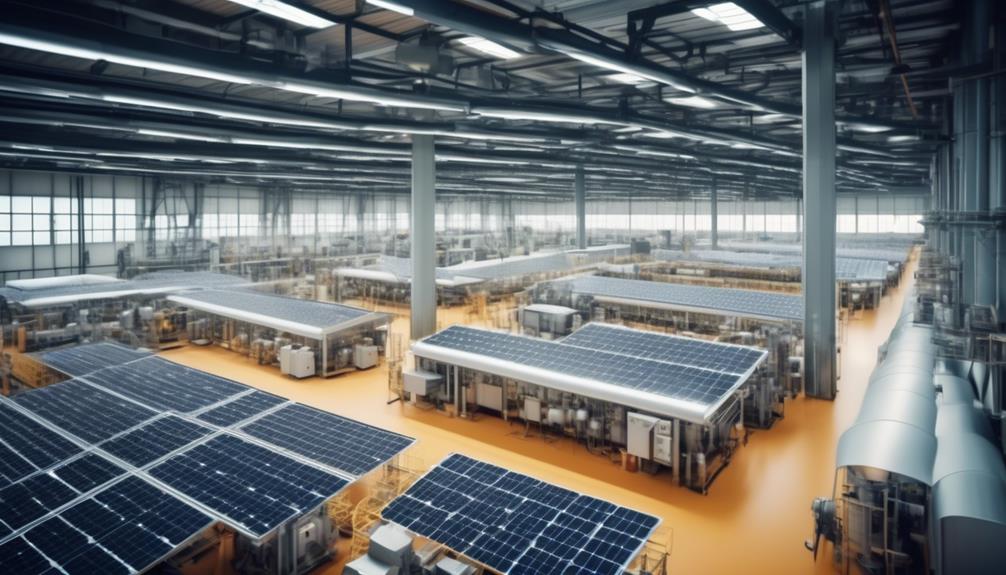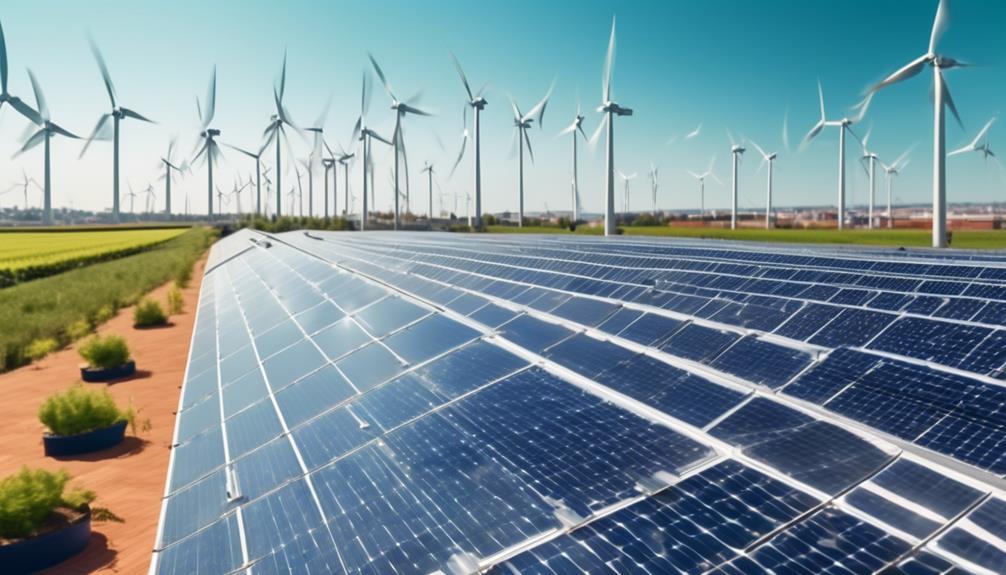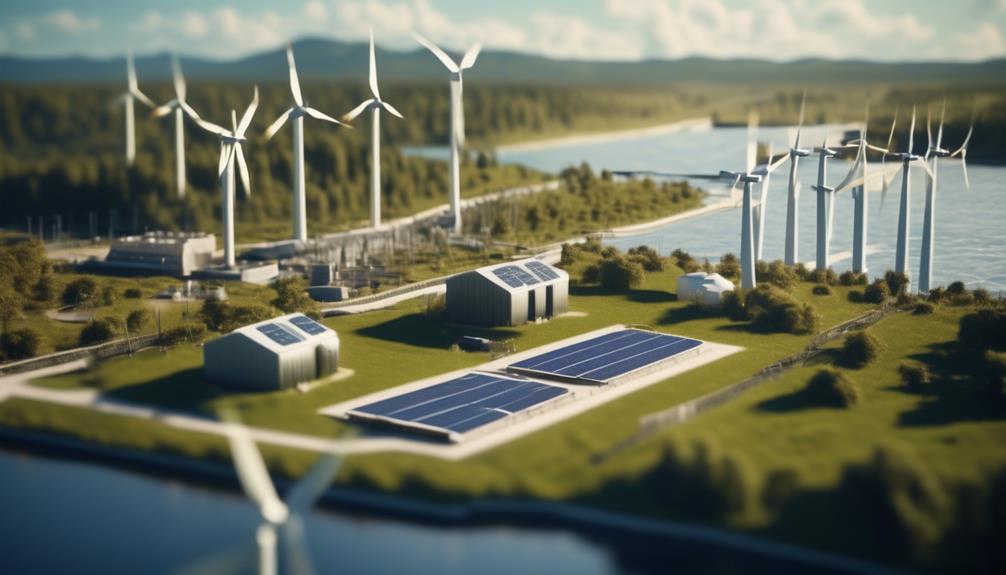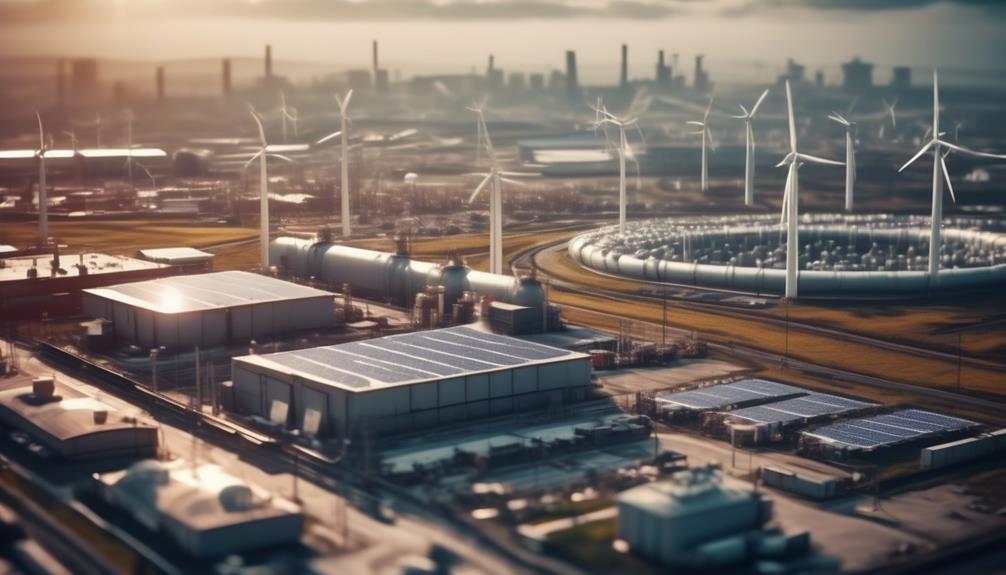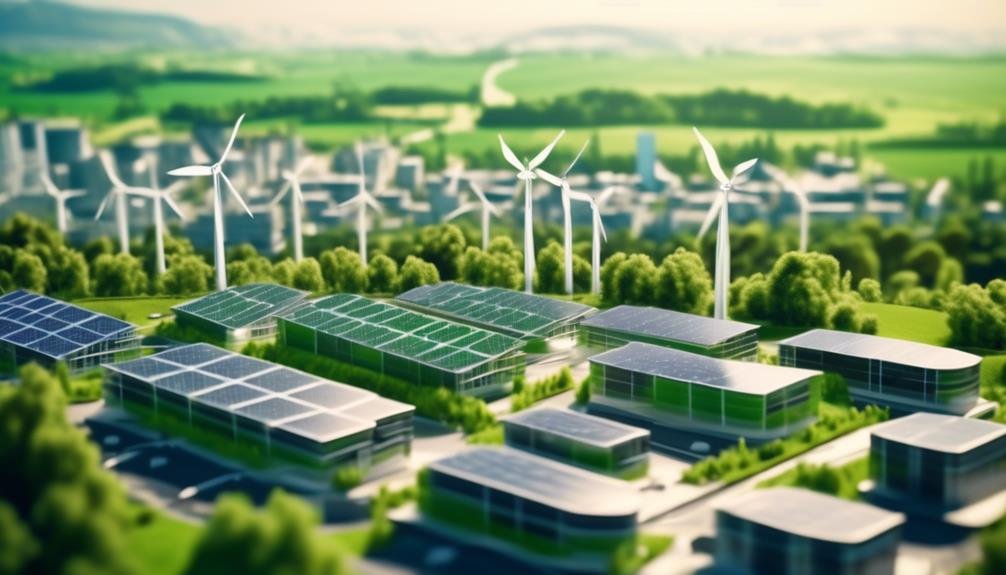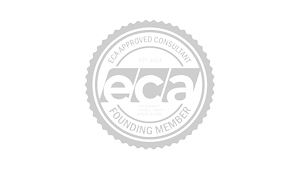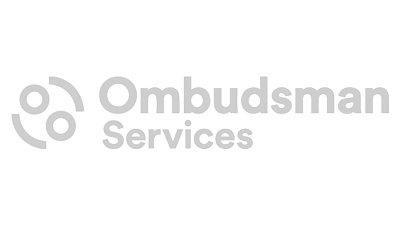Navigating the complex world of energy solutions, business leaders seek ways to integrate sustainable practices while also eyeing the bottom line. The quest often revolves around finding the perfect blend of renewable energy sources and cutting-edge efficiency technologies that not only align with their operations but propel them towards greater cost savings and environmental stewardship.
This journey, although rewarding, is fraught with challenges—from deciphering the myriad of options to tailoring a strategy that meets specific organisational goals.
With a deep understanding of these intricacies, this article draws from a wealth of knowledge in crafting custom energy solutions that resonate with diverse business needs. Recognising the unique position each organisation holds in its sustainability journey, the content is tailored to illuminate paths that navigate through the complexities of energy optimisation.
As we delve into the exploration of tailored energy strategies, rest assured, the insights shared here are designed to equip you with the knowledge to make informed decisions, encouraging a confident stride towards achieving your sustainability and efficiency objectives.
Energy Audits and Assessments
Energy audits and assessments are essential tools for organisations seeking to identify and address areas of energy waste and inefficiency in their buildings and facilities. These evaluations provide a comprehensive understanding of energy usage patterns and potential opportunities for energy savings.
By conducting energy audits and assessments, organisations can develop targeted strategies to improve energy efficiency and reduce operational costs. The findings from these evaluations can inform the implementation of energy conservation measures and the adoption of sustainable energy solutions.
Energy audits and assessments are crucial for organisations aiming to enhance their environmental sustainability and optimise their energy management practices. Through these processes, organisations can gain insights into their energy consumption, identify areas for improvement, and make informed decisions to support their long-term energy goals.
Ultimately, energy audits and assessments empower organisations to take control of their energy usage, reduce waste, and operate more efficiently, leading to cost savings and a reduced environmental impact.
Renewable Energy Integration
After conducting thorough energy audits and assessments to identify areas of waste and inefficiency, organisations can now turn their attention to the integration of renewable energy sources such as solar and wind into their existing energy infrastructure.
Renewable Energy Integration
- Customisable Solutions: Renewable Energy Integration solutions can be tailored to meet specific energy needs and environmental goals, providing organisations with custom energy solutions that align with their unique requirements.
- Cost Control: Integration of renewable energy helps control energy costs by offering price certainty, supporting financial stability, and providing the skills necessary for successful integration.
- Environmental Impact: By optimising the use of renewable energy, organisations can reduce their reliance on traditional fossil fuels and lower carbon emissions, contributing to a more sustainable and environmentally friendly energy infrastructure.
- Collaborative Approach: Effective Renewable Energy Integration often requires collaboration with various sectors such as government, education, commercial & industrial, and utilities, emphasizing the importance of a coordinated and cooperative approach to achieve successful integration.
Renewable Energy Integration offers organisations the opportunity to embrace sustainable energy practices while benefiting from tailored solutions that align with their specific energy needs and environmental objectives.
Energy-Efficient Technology Implementation
What key considerations should organisations prioritise when implementing energy-efficient technologies to optimise their overall energy utilisation?
Implementing energy-efficient technologies is a strategic initiative for organisations looking to reduce their energy consumption and environmental impact. When considering energy efficiency, organisations should prioritise practical options such as lighting upgrades, HVAC renovation, and central plant retrofits. These initiatives can significantly reduce energy consumption and operational costs.
Additionally, infrastructure renewal strategies, including energy auditing, advanced controls and metering, and measurement and verification, play a crucial role in optimising energy use.
Incorporating renewable energy options like solar, wind, and small-scale hydro technology can further enhance energy efficiency and sustainability. Furthermore, water conservation solutions can complement energy-efficient technology implementation by addressing inefficient water usage and high water costs.
Demand Response and Peak Load Management
Organisations seeking to optimise their overall energy utilisation and contribute to grid stability can leverage Demand Response and Peak Load Management strategies as a natural progression from implementing energy-efficient technologies. These strategies offer a proactive approach to managing energy consumption and can provide numerous benefits for businesses.
Here are some key aspects to consider:
- Financial Incentives: By participating in Demand Response programs, businesses can earn financial incentives for reducing energy usage during peak demand periods.
- Grid Stability: Peak Load Management involves strategies to lessen energy usage during times of highest demand, contributing to grid stability.
- Cost Savings: Implementing Demand Response and Peak Load Management can result in cost savings for businesses through reduced energy consumption and optimised operations.
- Customisability: These solutions are customisable to fit the unique energy needs and operational requirements of businesses, providing a tailored approach to energy management.
Energy Monitoring and Reporting
Energy Monitoring and Reporting is a critical component of effective energy management. It provides real-time insights into energy consumption and performance data. By enabling real-time tracking of energy usage patterns, this system identifies opportunities for optimisation and cost savings. It plays a pivotal role in sustainable solutions by facilitating compliance with energy regulations and sustainability goals through accurate data tracking.
Additionally, Energy Monitoring and Reporting generates comprehensive reports and analytics. These reports support informed decision-making and strategic planning. The solutions are customisable to specific energy monitoring and reporting needs, ensuring that businesses have the necessary tools to manage their energy consumption effectively.
With the ability to monitor and report on energy usage, organisations can gain better control over their energy consumption. They can reduce waste and make informed decisions to support their sustainability objectives. Energy Monitoring and Reporting not only provides visibility into energy usage but also empowers businesses to drive efficiency and cost-effectiveness in their operations.
Customised Energy Efficiency Strategies
The foundation of effective energy management, including energy monitoring and reporting, sets the stage for the implementation of customised energy efficiency strategies tailored to address specific energy consumption and optimisation needs.
Customised energy efficiency strategies focus on using less energy and optimising overall energy use, offering practical options for increasing energy efficiency such as lighting upgrades, HVAC renovation, and complete central plant retrofits.
These strategies also include measures to update energy-draining systems and equipment, like energy auditing, advanced controls and metering, and measurement and verification.
Moreover, they provide a comprehensive view of how renewables fit into the total energy picture, identifying options like solar and wind energy, battery storage, and small-scale hydro technology.
Additionally, customised energy efficiency strategies address inefficient water usage and high water costs, offering unique water conservation solutions through financial analytics, plumbing engineering, cost estimating, construction, prefabrication, commissioning, and service.
These strategies offer a comprehensive approach to energy optimisation, providing the audience with a multitude of options and solutions to effectively manage and reduce energy consumption while maintaining control over their energy use.

